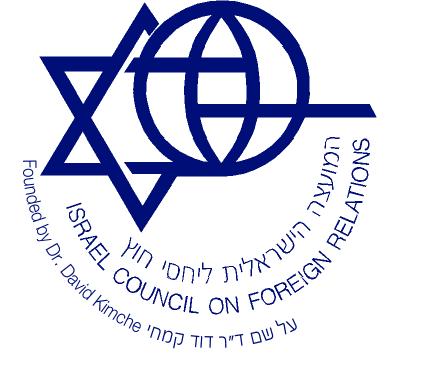EVENTSPAST EVENTS
No good options on North Korea?
Tel Aviv Stock Exchange Conference Center
Iran-North Korea Nuclear Collaboration is Israel’s Worst Nightmare, Says Expert
No Good Options on North Korea?
Regional and global implications from an Israeli perspective
Speakers:
- Dr. Daniel A. Pinkston – Lecturer in international relations at Troy University; Former Northeast Asia Deputy Project Director at the International Crisis Group in Seoul (via video conference)
- Dr. Emily Landau – Senior Research Fellow & Head of the Arms Control and Regional Security Program, INSS
- Dr. Alon Levkowitz – Researcher, the Begin Sadat Center for Strategic Studies, Bar-Ilan University
Moderator:
- Larry Luxner – News Editor, The Washington Diplomat
As President Trump embarked on a 12-day tour of North East Asia, where North Korea dominated his talks with the leaders of China, Japan and South Korea, the Israel-Asia Center – in partnership with the Israel Council on Foreign Relations – held a high-level discussion on November 6, with leading Israeli and international experts that explored the regional and international implications of a nuclear North Korea. What are the foreseeable actions of North Korea’s neighbors, and the United States? What is Israel’s perspective given its efforts against the Iranian nuclear agreement? What – if any – are the economic, diplomatic and military options on the table? Are there now really no good options when it comes to North Korea?
—
In recent months, tensions between North Korea, its neighbors, and the United States have been rapidly escalating. Since early 2017, North Korea, under the leadership of Kim Jong-un, has tested 22 ballistic missiles. In July 2017, the country conducted its first intercontinental ballistic missile (ICBM) tests, and it is feared that it now has the capability to strike targets as far as the United States with both conventional and nuclear weapons.
North Korea’s increasing belligerency is spurring Japan’s re-elected Shinzo Abe to push for revising Japan’s pacifist constitution and expanding its military, while China – Pyongyang’s sole major ally – is becoming increasingly frustrated with the Kim regime, leading to a breakdown in diplomacy between the two countries, and imposition of economic sanctions by China. Meanwhile, concerns over what intelligence North Korea may have shared with Iran regarding its nuclear program were expressed in April 2017, when Israel’s Defense Minister Avigdor Liberman said Pyongyang seemed to have “crossed the red line with its recent nuclear tests”.
At the event, Dr. Emiy Landau said, “The international community should recognize that 25 years of diplomacy as the “strategy of choice” vis-à-vis North Korea did not prevent Pyongyang from achieving nuclear capability, and there is no reason to expect the same model will work with respect to Iran.”
“The international community must understand the limits of diplomacy if there is any hope to derail Iran’s nuclear program,” Landau said.
Dr. Alon Levkowitz who also spoke on the panel said that Israel’s “biggest fear” would be for Pyongyang to offer to develop nuclear weapons on behalf of Iran, thus allowing the Islamic Republic to become a nuclear state without violating the terms of the nuclear agreement signed with the P5+1. But Levkowitz added it would not be the only way for North Korea could pose a threat to Israel.
“North Korea is selling missiles to Syria, for example, selling light ammunition to just about every terrorist group in the region,” Levkowitz said. “In the old days they sold [weapons] to Egypt. So it is a huge matter of concern for Israel – Israel needs the U.S. to intercept the shipments on the way to the Middle East, or if they don’t manage to do that, we have to bombard them.”
Levkowitz has also written extensively about North Korea’s involvement in constructing Syria’s nuclear reactor, which Israel destroyed in 2007, four years before the start of the civil war there.
Asked whether Israel’s close diplomatic ties with China and Russia – two countries that also share diplomatic ties with both Iran and North Korea – Levkowitz said that Israel’s growing relationship with both countries is unlikely to move either to press the issue on Israel’s behalf.
On the upside, Emily Landau proffers, “Look, there are some positive signs. A year ago, supporters of the deal wouldn’t even admit the agreement wasn’t perfect. Now, at least they are saying ‘it may not be perfect, but…
“But 25 years of diplomacy failed. North Korea is a nuclear state now. As far as Iran is concerned it isn’t too late. There are things that can be done now. But the international community has got to realize the threat here. Right now, I don’t see it,” she said.
In partnership with the Israel Council on Foreign Relations


 Dr. Emily Landau is a senior research fellow at INSS and head of the Arms Control and Regional Security Program, leading its research, conference outreach, and mentorship projects. Dr. Landau has published and lectured extensively on nuclear proliferation, arms control, and regional security dynamics in the Middle East; WMD proliferation challenges in the post-Cold War era; Israel’s nuclear image and policy; and developments in global arms control thinking in the nuclear realm. In 2012 she published Decade of Diplomacy: Negotiations with Iran and North Korea and the Future of Nuclear Nonproliferation, a comparative study assessing the effectiveness of negotiations as a strategy to confront the military nuclear ambitions of Iran and North Korea. Dr. Landau is a frequent commentator in Israeli and leading international media, and in 2015 was chosen by Forbes magazine as one of Israel’s fifty most influential women, in recognition of her work on security issues, in particular her public profile regarding the Iranian nuclear crisis.
Dr. Emily Landau is a senior research fellow at INSS and head of the Arms Control and Regional Security Program, leading its research, conference outreach, and mentorship projects. Dr. Landau has published and lectured extensively on nuclear proliferation, arms control, and regional security dynamics in the Middle East; WMD proliferation challenges in the post-Cold War era; Israel’s nuclear image and policy; and developments in global arms control thinking in the nuclear realm. In 2012 she published Decade of Diplomacy: Negotiations with Iran and North Korea and the Future of Nuclear Nonproliferation, a comparative study assessing the effectiveness of negotiations as a strategy to confront the military nuclear ambitions of Iran and North Korea. Dr. Landau is a frequent commentator in Israeli and leading international media, and in 2015 was chosen by Forbes magazine as one of Israel’s fifty most influential women, in recognition of her work on security issues, in particular her public profile regarding the Iranian nuclear crisis. Dr. Alon Levkowitz is the coordinator of the Asian Studies Program at Bar-Ilan University and a researcher at the Begin Sadat Center for Strategic Studies at Bar-Ilan University. His research focuses on politics and foreign relations in East Asia, Korean foreign and security policy, and Northeast Asian security. He has published articles in a number of academic journals including International Relations of the Asia Pacific, The Korean Journal of Defense Analysis, Defense and Peace Economics, Middle East and Policy Studies, The Israel Journal of Foreign Affairs, and Military & Strategic Affairs. His Ph.D. (2005, The Hebrew University of Jerusalem) analyzed the defense policies of the United States’ allies in Asia: Japan, South Korea and the Philippines.
Dr. Alon Levkowitz is the coordinator of the Asian Studies Program at Bar-Ilan University and a researcher at the Begin Sadat Center for Strategic Studies at Bar-Ilan University. His research focuses on politics and foreign relations in East Asia, Korean foreign and security policy, and Northeast Asian security. He has published articles in a number of academic journals including International Relations of the Asia Pacific, The Korean Journal of Defense Analysis, Defense and Peace Economics, Middle East and Policy Studies, The Israel Journal of Foreign Affairs, and Military & Strategic Affairs. His Ph.D. (2005, The Hebrew University of Jerusalem) analyzed the defense policies of the United States’ allies in Asia: Japan, South Korea and the Philippines.
